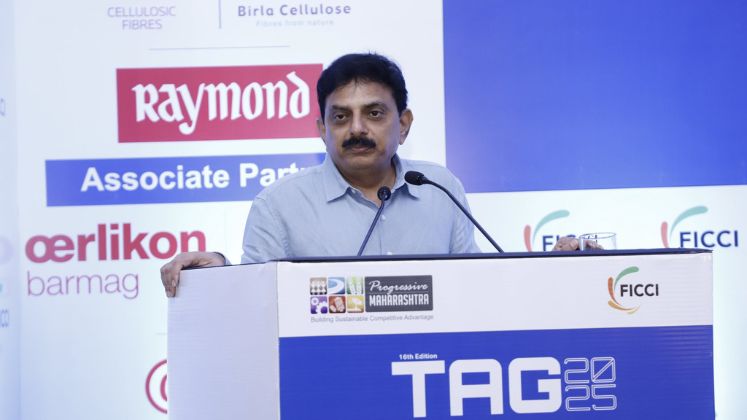
Maharashtra’s Minister of Textiles, Sanjay Savkare, has released the annual FICCI–Wazir Advisors textile industry report, Catalysing Textile & Apparel Growth: Leveraging Global Opportunities, at the TAG 2025 Annual Textile Conference organised by FICCI.
Savkare said that the Maharashtra Government, through its policy measures, is focusing on attracting both domestic and foreign investment while strengthening skilling, research and development, and infrastructure to build a globally competitive textile and apparel industry in the state. He noted that plans are underway to establish six Technical Textile Parks, one in each of Maharashtra’s revenue divisions, to position the state as a hub for technical textiles.
He added that a task force has been set up to seek suggestions from stakeholders to enhance the export competitiveness of Maharashtra. Support to the textile industry, he stated, would be extended in line with the recommendations of this task force.
Anshu Sinha, Principal Secretary (Textiles), Government of Maharashtra, underlined the importance of collaboration between industry, academia, and government in strengthening Maharashtra’s role as a leading textile manufacturing hub. She called on the industry to support state initiatives in the areas of skilling, R&D, and sustainable practices.
Presenting highlights of the FICCI–Wazir Advisors report, Prashant Agarwal, Joint Managing Director, Wazir Advisors, outlined how the global textile and apparel industry—valued at around US $ 893 billion in 2024 with 5% annual growth—faces both opportunities and challenges. He pointed to shifting trade flows, sustainability demands, and tariff headwinds from the United States as key issues shaping the sector.
The report notes that while India has strong fundamentals, with a domestic textile and apparel market worth US $ 184 billion and exports of US $ 37 billion in FY ’25, it faces competitive pressure from countries such as Bangladesh and Vietnam, which enjoy lower tariffs in the US market.
Garmenting investments, innovation, and sustainability are identified as central levers for India’s next phase of growth. The study highlights that forward integration into apparel manufacturing could generate large-scale employment, boost value addition, and strengthen India’s position as an end-to-end sourcing hub. It also stresses the need for market diversification, policy stability, and the wider adoption of green manufacturing practices to achieve sustainable growth.






